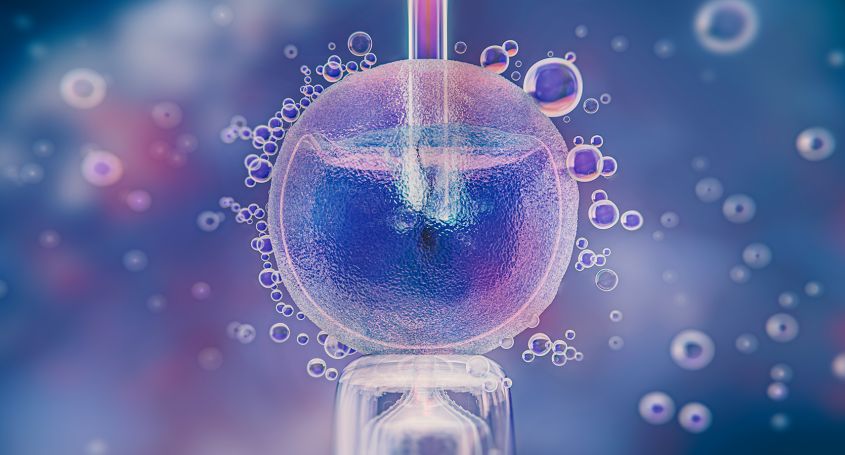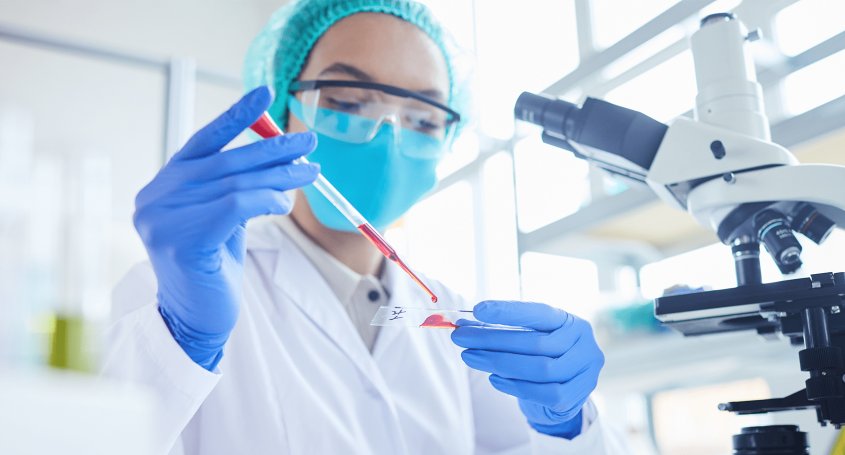Up to 15% of couples who try to have a child have fertility problems, the causes of which can be multiple and complex, ranging from hormonal alterations and environmental factors to genetic problems.
In recent decades, assisted reproduction treatments have allowed many people who did not get pregnant naturally to fulfill their desire to start a family.
Advances in the knowledge of fertility and embryonic development have allowed a greater understanding of the factors that influence and intervene in reproductive success. Today, it is known that not only genetics determines embryonic development and the health of the future child, but also how these genes are expressed through epigenetic mechanisms. This means that factors such as the environment and lifestyle of the parents can influence both the viability of the embryo and the success of the treatments and the well-being of the baby in the long term.
Epigenetics and assisted reproduction
Epigenetics is the set of mechanisms responsible for regulating gene expression. In the context of assisted reproduction, these mechanisms are especially relevant because they can modulate gametogenesis and gamete quality, fertilization, embryo implantation and development.
These epigenetic processes can be influenced by external factors such as diet, stress, physical activity or tobacco or alcohol consumption. This implies that the lifestyle of the intended parents before and during an assisted reproduction treatment, as well as during pregnancy, can induce epigenetic modifications that influence reproductive health and treatment success rates, as well as the child's long-term health.
Assisted reproduction treatments consist of different procedures that include ovarian stimulation, in vitro fertilization, embryo culture and vitrification. Advances in the field of reproductive biology allow the continuous optimization of the different stages, improving the effectiveness of treatments.
Epigenetics and egg donation
One of the examples of the effect of epigenetics on assisted reproduction is found in egg donation treatments and in the Couple's Oocyte Reception (ROPA) method. In these cases the genetic material of the embryo does not come from the surrogate mother, however, it has been shown that the uterine environment influences the expression of the embryo's genes. Through epigenetic signals, the surrogate mother modulates embryonic development, which strengthens the bond between mother and child and reduces the possible emotional impact associated with not transmitting one's own genetic load.
Importance of lifestyle
Factors such as diet, stress, physical exercise or smoking have a great influence on how genes are expressed, so adopting healthy lifestyle habits can promote embryonic development and increase the chances of success of an assisted reproduction treatment.
A balanced diet containing the necessary nutrients contributes to correct gene expression and healthy embryonic development. On the other hand, chronic stress can alter the hormonal balance by decreasing ovulation and reducing the possibility of fertilization, in addition to modifying the expression of genes involved in the neurodevelopment and immunity of the embryo. Promoting emotional well-being promotes fertility and pregnancy. Moderate physical activity also reduces stress and improves insulin levels, which improves fertility, while modulating genes related to metabolism and the development of the embryo's cardiovascular system. Exposure to toxins such as alcohol, tobacco or pollutants can also affect ovulation as well as gamete quality, implantation and embryonic development.
Epigenetic modifications are in many cases reversible, which opens the possibility of intervening through changes in lifestyle or the environment to promote optimal gene expression.
Beyond genes
Epigenetics shows that, in the field of reproduction, there are many factors that play an important role in fertility beyond genes. Taking these factors into account in assisted reproduction treatments allows us to improve their safety and efficacy, while promoting better gene expression that can have effects on the development of the embryo and its long-term health.
Adopting a healthy lifestyle and relying on a specialized center that integrates epigenetic knowledge into its treatments is a way to take care of the health and well-being of the future baby from the beginning.




















